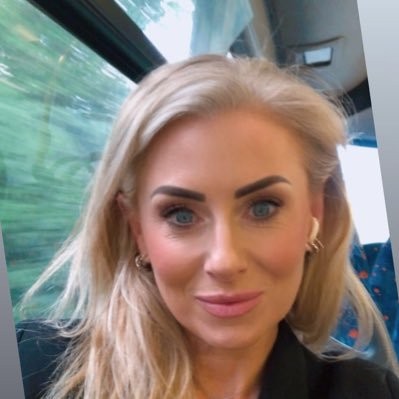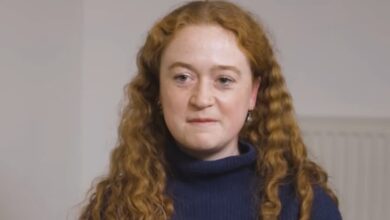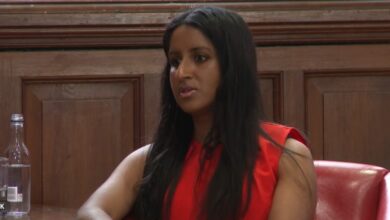Bronagh Munro – The Investigative Voice of BBC Journalism and Panorama Integrity

Who Is Bronagh Munro?
Bronagh Munro is a seasoned BBC Network Correspondent and investigative journalist based in Belfast, Northern Ireland. With over 13 years of experience at the British Broadcasting Corporation (BBC), she has become one of the most respected voices in investigative broadcasting, known for her relentless pursuit of truth, dedication to factual storytelling, and unwavering commitment to public interest journalism.
Currently serving as a Network Correspondent for BBC Panorama and other major BBC documentary series, Bronagh Munro has built a strong reputation for unearthing complex stories that blend emotion, integrity, and hard-hitting facts. Her work exemplifies the very essence of public service journalism—holding power to account and bringing unheard voices to the forefront.
Early Career and Rise within the BBC
Bronagh Munro began her journey with the BBC as a Broadcast Journalist in 2012, marking the start of an impressive career in investigative media. Over the years, she transitioned from radio and field reporting to the heart of television broadcasting. Her investigative focus and analytical depth earned her recognition across BBC News and current affairs divisions.
In April 2016, she advanced to the position of Network Correspondent, a role she continues to hold. Based in Belfast, she contributes to both BBC News and Panorama, the broadcaster’s flagship investigative current affairs programme. This position demands high editorial integrity, fact-checking expertise, and the ability to balance sensitivity with public accountability—skills that define Bronagh Munro’s professional identity.
Bronagh Munro’s Work with BBC Panorama
Investigative Storytelling and Documentary Expertise
Within BBC Panorama, Bronagh Munro has produced and presented several landmark stories that delve into the intricacies of justice, inequality, and human experience. Her ability to handle delicate narratives with empathy while maintaining objectivity distinguishes her reporting style.
She has contributed to the BBC’s most acclaimed investigative documentaries, focusing on unsolved crimes, wrongful convictions, and institutional failings. Her storytelling approach is characterised by precision, human empathy, and an unwavering focus on transparency.
Unsolved: The Man with No Alibi
One of her most notable works is “Unsolved: The Man with No Alibi” (2018), an investigative documentary that examined the murder of Korean student Jong-Ok Shin in Bournemouth. The case raised critical questions about evidence reliability and legal accountability. Munro’s sensitive yet determined investigation reignited public interest in a case long considered closed, reflecting her belief that journalism can—and should—seek justice even when the legal system has moved on.
Unsolved: An Alibi for Omar?
Continuing her work in the “Unsolved” series, Bronagh Munro co-created “Unsolved: An Alibi for Omar?” (2021), where she revisited the conviction of Omar Benguit, a man imprisoned for the murder of Jong-Ok Shin. The programme questioned the robustness of the evidence used to convict him and examined claims of a possible miscarriage of justice. Her calm, investigative tone and evidence-driven analysis set a benchmark for responsible investigative reporting.
Panorama and Public Accountability
Beyond the “Unsolved” series, Bronagh Munro’s association with BBC Panorama underscores her role in shaping public accountability. Her work contributes to exposing systemic flaws, uncovering hidden truths, and inspiring dialogue around justice, policy, and ethics. Through her journalism, she personifies the BBC’s mission of informing and educating the public without bias or sensationalism.
Professional Ethos and Journalistic Philosophy
Truth Is Rarely Pure and Never Simple
Bronagh Munro’s professional motto, taken from Oscar Wilde’s famous quote, “Truth is rarely pure and never simple,” perfectly encapsulates her investigative approach. It is not just a statement—it is the guiding principle that defines her career. For her, truth-seeking in journalism involves exploring the complex layers of human behaviour, systemic challenges, and institutional barriers that often obscure reality.
Her journalistic ethos revolves around fairness, evidence, and empathy. Munro believes in presenting facts that empower the audience to draw their own conclusions, a rare quality in today’s era of opinion-driven media. Whether reporting from the field, narrating a documentary, or analysing a legal case, she maintains a tone of balance, respect, and authenticity.
Bronagh Munro and Her Role in Modern Broadcasting
A Voice for the Underrepresented
Through her documentaries and broadcasts, Bronagh Munro has consistently highlighted issues affecting ordinary people—those who often go unheard. Her storytelling focuses on real human experiences, from families affected by wrongful convictions to communities struggling for justice. This people-centred journalism has earned her admiration from colleagues and viewers alike.
The Digital Transformation of Journalism
As media landscapes evolve, Bronagh Munro has adapted seamlessly. She integrates digital storytelling tools, multimedia research, and interactive platforms to make investigative journalism accessible to broader audiences. Her hybrid working role reflects the BBC’s shift toward a more flexible, technology-driven future without compromising traditional journalistic values.
Collaboration with Alys Harte
Bronagh Munro’s collaborative spirit is best exemplified by her partnership with Alys Harte, another prominent BBC journalist. Together, they co-reported the investigative series “Unsolved: The Boy Who Disappeared”, which explored the mysterious disappearance of Damien Nettles. The documentary combined empathy with evidence-based inquiry, providing fresh perspectives on long-standing cases and reinforcing the BBC’s reputation for credible investigative journalism.
Their collaboration demonstrated Munro’s ability to work in high-pressure, team-driven environments while maintaining journalistic integrity. It also showcased her skill in blending emotional narrative with factual precision—an essential trait for investigative storytellers.
Personal and Professional Privacy
While Bronagh Munro’s professional accomplishments are well-documented, she remains remarkably private about her personal life. Her age, date of birth, and marital status have not been publicly disclosed, a testament to her preference for maintaining boundaries between her personal and professional identities.
In an era when media personalities often merge public image with private exposure, Bronagh Munro stands apart as a journalist who allows her work to speak louder than her persona. This discretion reflects the ethical maturity and humility that characterise her professional approach.
Recognition and Reputation
Bronagh Munro’s body of work has earned her widespread recognition across the British media industry. Her audience appreciates her for being calm, credible, and compassionate in her reporting. Within the BBC, she is regarded as a trusted investigative correspondent capable of tackling sensitive cases with journalistic rigour and humanity.
Her combination of experience in broadcast journalism, documentary production, and live reporting makes her a multifaceted journalist who contributes meaningfully to the BBC’s global credibility.
Bronagh Munro’s Legacy in Investigative Journalism
A Journalist of IntegrityBronagh Munro – BBC Journalist & Panorama Correspondent
In the field of investigative reporting, Bronagh Munro stands as a symbol of integrity and truth-seeking. Her dedication to uncovering facts without bias and her courage to challenge narratives have strengthened public trust in broadcast journalism.
Her documentaries not only inform but also influence policy discussions and public understanding. They remind viewers that journalism is not merely about storytelling—it is about accountability, justice, and humanity.
Inspiring Future Journalists
Aspiring journalists can learn much from Bronagh Munro’s career path: the importance of perseverance, ethical reporting, and respect for truth. Her journey from broadcast journalism to high-profile BBC documentaries demonstrates that impactful journalism is built on curiosity, diligence, and empathy.
Conclusion
Bronagh Munro embodies the heart of investigative journalism in the United Kingdom. As a Network Correspondent for BBC Panorama, she continues to pursue the stories that matter—those that challenge institutions, champion justice, and give a voice to the voiceless.
Her professionalism, integrity, and storytelling mastery make her one of the most respected figures in British broadcasting. With more than a decade of unwavering service at the BBC, Bronagh Munro has become not just a reporter but a symbol of trust, dedication, and the enduring power of truth in journalism.



